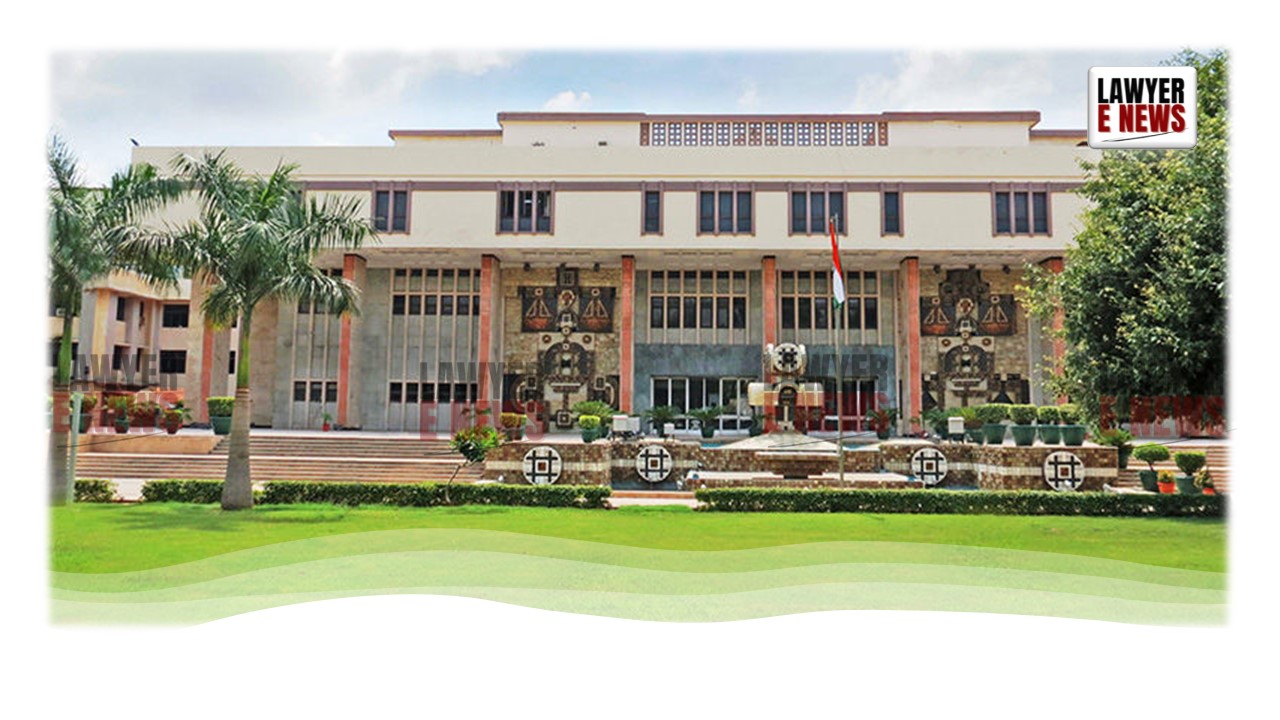-
by Admin
15 February 2026 5:01 PM



“Compensation Mechanism Under SC/ST Act Linked to Prosecution, Settlement Nullifies Victimization” – Delhi High Court dismissing a petition seeking increased compensation under the Scheduled Castes and Scheduled Tribes (Prevention of Atrocities) Act, 1989 ("SC/ST Act"). Justice Sanjeev Narula held that the quashing of the FIR following a private settlement between the victim and the accused nullified the victim’s right to claim further compensation under the Act and accompanying Rules.
The judgment reinforces the principle that compensation under the SC/ST Act is intrinsically linked to prosecution and victim participation in the justice process. In situations where private settlements result in the abandonment of legal proceedings, the court ruled that the State cannot be compelled to provide compensation.
The petitioner, Balbir Meena, lodged an FIR (No. 337/2019) under Sections 3(1)(C), 3(1)(r), 3(1)(s), and 3(2)(ii) of the SC/ST Act at the Dwarka Police Station, alleging caste-based abuse. Under the SC/ST (Prevention of Atrocities) Rules, 1995, victims are entitled to staged compensation. Meena sought a total compensation of ₹4,15,000, claiming that 75% of this amount was due after the filing of the FIR and charge sheet.
However, during the pendency of the criminal case, Meena amicably settled the matter with the accused, Rakesh Singh, and sought to withdraw the charges. The FIR was quashed by the High Court on January 12, 2021. Following the settlement, the Sub-Divisional Magistrate (Dwarka) sanctioned ₹10,000 as partial compensation. Dissatisfied, Meena challenged this award, arguing it was inadequate and inconsistent with the Act’s compensation mechanism.
Whether the petitioner was entitled to additional compensation under the SC/ST Act after the FIR was quashed due to a private settlement.
Whether the State's decision to award ₹10,000 as compensation was justified in light of Rule 12 of the SC/ST Rules, 1995.
The Court emphasized that the compensation mechanism under the SC/ST Act is contingent on the prosecution of offenses. Rule 12 of the SC/ST Rules provides for staged compensation, with payments tied to the filing of the FIR, charge sheet, and conviction of the accused. The Court noted that when legal proceedings are discontinued due to a private settlement, the foundational premise of victimization under the Act is effectively nullified.
Justice Narula referred to the Allahabad High Court's judgment in Jhabbu Dubey Alias Pradeep Kumar Dubey v. State of U.P. (2023), which held that compensation under the SC/ST Act must be returned if legal proceedings are discontinued due to a settlement. The Delhi High Court agreed with this reasoning, stating:
"Compensation under the Act is contingent upon the prosecution of offenses and the victim’s active participation in the legal process to bring offenders to justice. When the prosecution is abandoned due to a private settlement, the foundational premise for awarding compensation no longer exists."
The Court concluded that the quashing of the FIR negated the petitioner’s right to claim further compensation.
The Court highlighted the principle of restitution, emphasizing that State funds intended to support victims of atrocities should not be misused. Victims cannot claim or retain compensation if legal proceedings are discontinued due to a voluntary settlement. Justice Narula remarked:
"We are living in a welfare state but surely not in a charitable state. Compensation serves as a means to facilitate justice, not as an end in itself."
The Court further observed that awarding full compensation in cases of private settlement would contradict the spirit of the SC/ST Act, which aims to deter atrocities by ensuring offenders are prosecuted.
The Court found no procedural irregularities in the Respondents’ decision to sanction ₹10,000 as compensation. The amount was calculated based on the section with the lowest compensation threshold under the SC/ST Rules, 1995, in accordance with existing practice. The sanctioning authority also considered the petitioner’s earlier compensation of ₹2,40,000 in a similar case against the same accused (FIR No. 440/2014).
The Court noted that the petitioner and the accused, both members of the same police force, voluntarily resolved their dispute through a Memorandum of Understanding (MoU). The High Court quashed the FIR in January 2021, observing that the settlement was in the interest of maintaining "peace and harmony." Justice Narula emphasized that such settlements substantially undermine the basis for compensation under the SC/ST Act.
The Delhi High Court dismissed the petition, holding that the petitioner was not entitled to additional compensation under the SC/ST Act following the settlement and quashing of the FIR. The judgment underscores that compensation under the Act is closely linked to the victim's active participation in prosecution and cannot be claimed or retained in cases of private settlement.
Date of Judgment: November 27, 2024
